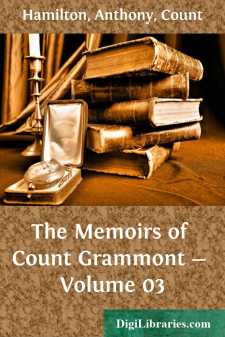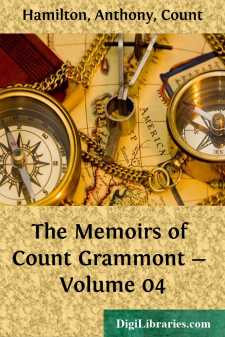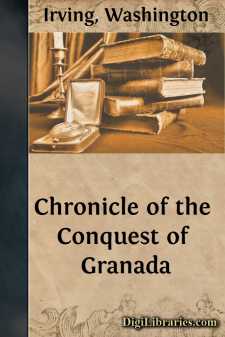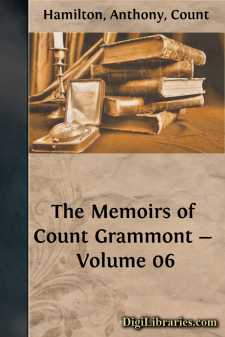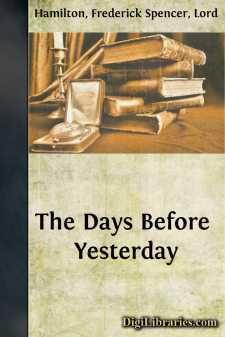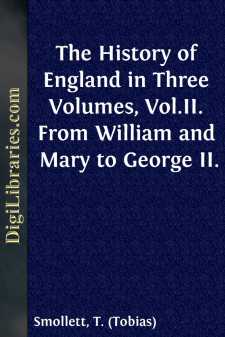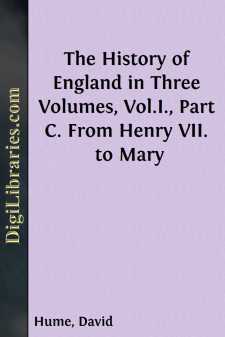History
- Africa 30
- Americas (North Central South West Indies) 50
- Ancient 68
- Asia 58
- Australia & New Zealand 8
- Canada 41
- Caribbean & West Indies 1
- Civilization 20
- Eastern Europe 12
- Europe 310
- Expeditions & Discoveries 60
- General 77
- Historical Geography 1
- Jewish 9
- Latin America 3
- Medieval 8
- Middle East 13
- Military 248
- Revolutionary 8
- Study & Teaching 5
- United States 353
- Western Europe 56
- World 13
History Books
Sort by:
by:
Anthony Hamilton
HIS ARRIVAL AT THE ENGLISH COURT —THE VARIOUS PERSONAGES OF THIS COURT Curiosity to see a man equally famous for his crimes and his elevation, had once before induced the Chevalier de Grammont to visit England. Reasons of state assume great privileges. Whatever appears advantageous is lawful, and every thing that is necessary is honourable in politics. While the King of England sought the protection...
more...
by:
Anthony Hamilton
FUNNY ADVENTURE OF THE CHAPLAIN POUSSATIN—THE STORY OF THE SIEGE OF LERIDA—MARRIAGE OF THE DUKE OF YORK, AND OTHER DETAILS ABOUT THE ENGLISH COURT. "Sir," said the Chevalier de Grammont, "the Prince de Conde besieged Lerida: the place in itself was nothing; but Don Gregorio Brice who defended it, was something. He was one of those Spaniards of the old stamp, as valiant as the Cid, as...
more...
INTRODUCTION. Although the following Chronicle bears the name of the venerable Fray Antonio Agapida, it is rather a superstructure reared upon the fragments which remain of his work. It may be asked, Who is this same Agapida, who is cited with such deference, yet whose name is not to be found in any of the catalogues of Spanish authors? The question is hard to answer. He appears to have been one of the...
more...
by:
Anthony Hamilton
OTHER LOVE INTRIGUES AT THE ENGLISH COURT. The conversation before related was agreeable only to Miss Hobart; for if Miss Temple was entertained with its commencement, she was so much the more irritated by its conclusion this indignation was succeeded by the curiosity of knowing the reason why, if Sidney had a real esteem for her, she should not be allowed to pay some attention to him. As soon as they...
more...
I was born the thirteenth child of a family of fourteen, on the thirteenth day of the month, and I have for many years resided at No. 13 in a certain street in Westminster. In spite of the popular prejudice attached to this numeral, I am not conscious of having derived any particular ill-fortune from my accidental association with it. Owing to my sequence in the family procession, I found myself on my...
more...
by:
Edward Farr
WAR WITH SPAIN. The year had not closed before the ministers found that a rupture with Spain was inevitable. The first intimation of it was detected in the menacing conduct of the court of Versailles; and Lord Bristol, the English ambassador at Madrid, was instructed to demand the real intentions of Charles III., and the real purport of the family compact. General Wall, the Spanish minister replied...
more...
by:
Charles Morris
HOW ENGLAND BECAME CHRISTIAN. One day, in the far-off sixth century, a youthful deacon of the Roman Church walked into the slave-market of Rome, situated at one extremity of the ancient Forum. Gregory, his name; his origin from an ancient noble family, whose genealogy could be traced back to the days of the early Cæsars. A youth was this of imperial powers of mind, one who, had he lived when Rome was...
more...
ACCOUNT OF THE NEW MINISTRY. William began his reign with a proclamation, for confirming all protestants in the offices which they enjoyed on the first day of December; then he chose the members of his council, who were generally staunch to his interest, except the archbishop of Canterbury and the earl of Nottingham, and these were admitted in complaisance to the church-party, which it was not thought...
more...
by:
David Hume
The religion of the Britons was one of the most considerable parts of their government; and the druids, who were their priests, possessed great authority among them. Besides ministering at the altar, and directing all religious duties, they presided over the education of youth; they enjoyed an immunity from wars and taxes; they possessed both the civil and criminal jurisdiction; they decided all...
more...
by:
David Hume
Henry was not ignorant of these intentions of his enemies, and he prepared himself for defence. He ordered troops to be levied in different parts of the kingdom, and put them under the command of the duke of Bedford and earl of Oxford. He confined the marquis of Dorset, who, he suspected, would resent the injuries suffered by his mother, the queen dowager; and, to gratify the people by an appearance of...
more...


